September 30, 2021
In the shadow of an institution that tried to destroy their culture forever, members of the Tk’emlúps te Secwépemc are reclaiming their identity.
The nation in British Columbia’s Interior sparked a global conversation this past spring when ground-penetrating radar confirmed what survivors have been saying for years — that there are potentially hundreds of unmarked children’s graves on the grounds of the former Kamloops Indian Residential School, which was operated by the Catholic Church from 1890 to 1969.
Several First Nations have launched their own searches since those findings were announced, and now, on Canada’s first National Day for Truth and Reconciliation, the Tk’emlúps te Secwépemc people are inviting the world to honour through music those who never came home from these federally funded, church-run schools.
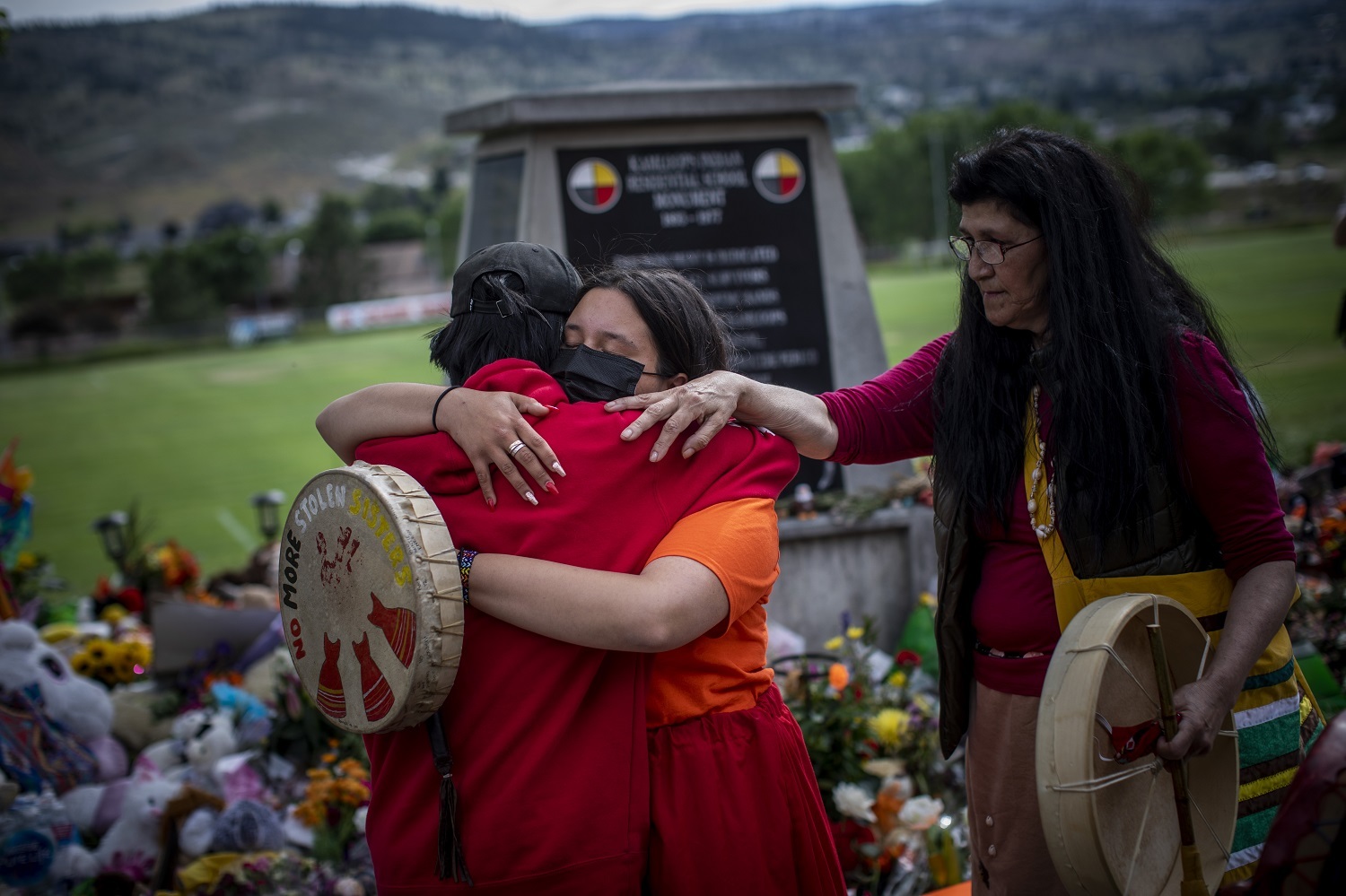
The new statutory holiday — recommended by the Truth and Reconciliation Commission in 2015 as one of its 94 calls to action after examining the abuses of Canada's residential school system — received royal assent on June 5 as a way to honour survivors, their families and communities. Previously called Orange Shirt Day, it was fast-tracked in Parliament following the Kamloops discovery.
The Tk’emlúps te Secwépemc has shared a video providing instruction on how to sing and drum along to the Secwépemc Honour Song and is asking people to join virtually on Thursday at 2:15 p.m. PT. The time reflects preliminary findings of 215 potential burial sites reported by the nation in May. That number was later revised down to 200.
“What we’re asking everyone to do is to keep these children in the back of your minds and bring them into your hearts, your thoughts … and be in solidarity with all of us,” said Kúkpi7 (Chief) Rosanne Casimir.
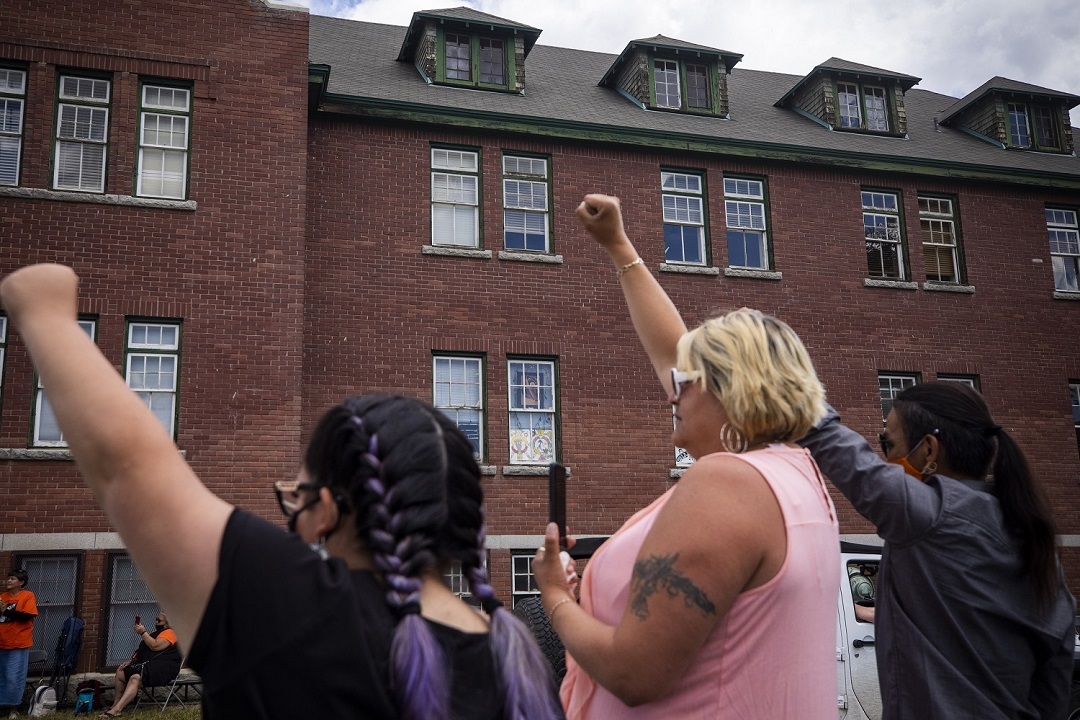
On the last day of summer, Casimir gathered with just over a dozen other nation members in view of the former residential school to practise drumming and singing for the upcoming performance.
The group was joyous, cracking jokes and giggling as they came together in the Chief’s Circle — a field in front of the nation’s Powwow Arbour, located between the South Thompson River and the former school — to proudly sing and drum in front of an institution built for the purpose of silencing and oppressing them.
Ted Gottfriedson, the Tk’emlúps te Secwépemc Nation’s language and culture manager, says he is looking forward to sharing the Secwépemc Honour Song.
“It will be beautiful to hear other people sing our song,” he said. “It's about honouring ourselves, it’s about honouring our ancestors, it’s about honouring the land, it’s about honouring everything — and for us, songs and spirituality go hand in hand,” he said.
Members of the Tk’emlúps te Secwépemc Nation practise for their performance on Canada's first National Day for Truth and Reconciliation.
The National Centre for Truth and Reconciliation recorded 51 fatalities at the Kamloops institution, but survivors say there are more. Gottfriedson says the finding of 200 potential burial sites has been traumatic for the community but vindicates those stories.
“[It’s] not a discovery, it’s a confirmation,” he said.
Since the news broke in May, Gottfriedson has witnessed his mom — a residential school survivor like many of his relatives — show her emotions in a way he's never seen before.
As a way to protect herself at residential school, he says, his mom learned to suppress her feelings so that she didn’t appear weak and avoided any attention. “That survivor mentality,” her son calls it.
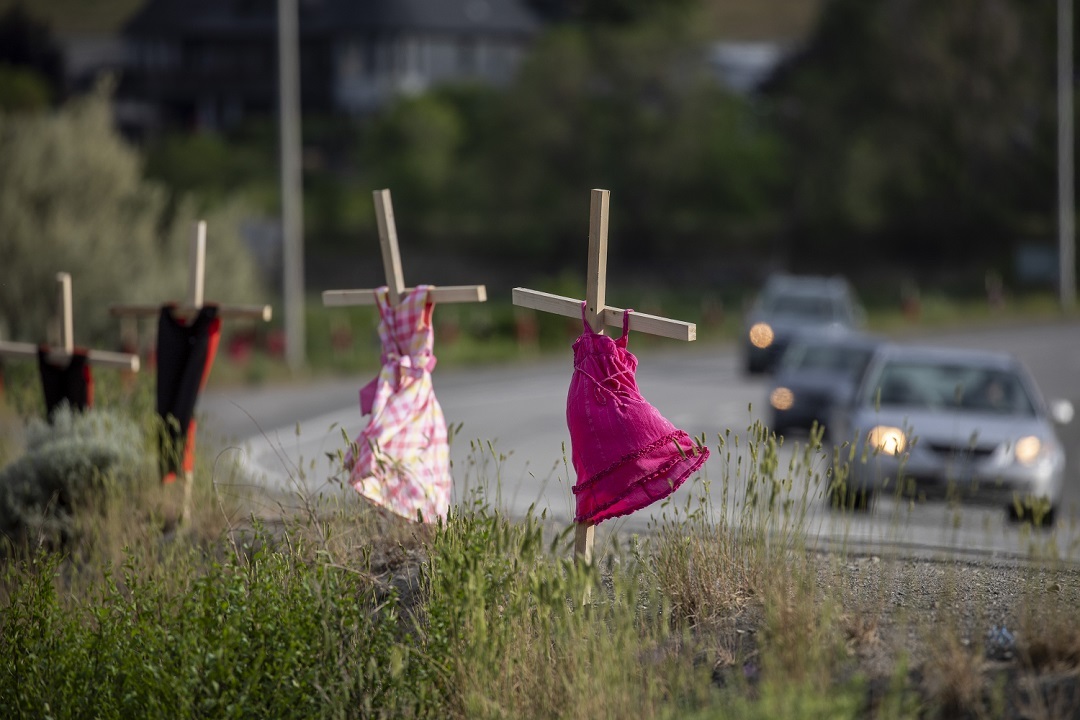
Since the world started waking up to the nightmare experienced by survivors, who are now being listened to and believed, Gottfriedson says his mom has started opening up and, after all these years of silence, feels ready to confront the abuse and harm she faced at the residential school.
“It’s been really hard to see, but it’s good at the same time,” he said. “For the first time since I was born, this has affected her in a way that nothing else has."
Gottfriedson is spending Sept. 30 with his mom.
Ted Gottfriedson and his daughter, Emma, talk about grieving and healing as a family.
Ted's daughter, Emma Gottfriedson, says it's important to her to spend the 30th with each of her grandmothers, both survivors who Emma says will have difficulty getting through the day.
The 23-year-old says growing up, her dad, like his mom before him, also kept a lot of emotions hidden and that she is breaking this cycle.
“I'm the type of person that feels all of my feelings out loud. I can't stop myself,” Emma said, adding she and her close friends — all descendants of residential school survivors — are reclaiming their right to “be loud and make ourselves known” after past generations were silenced by systematic oppression.
"I get to have this amazing life where I get to do so much," she said, fighting back tears. “I'd like to live this life that they’ve granted me as well as I possibly can."
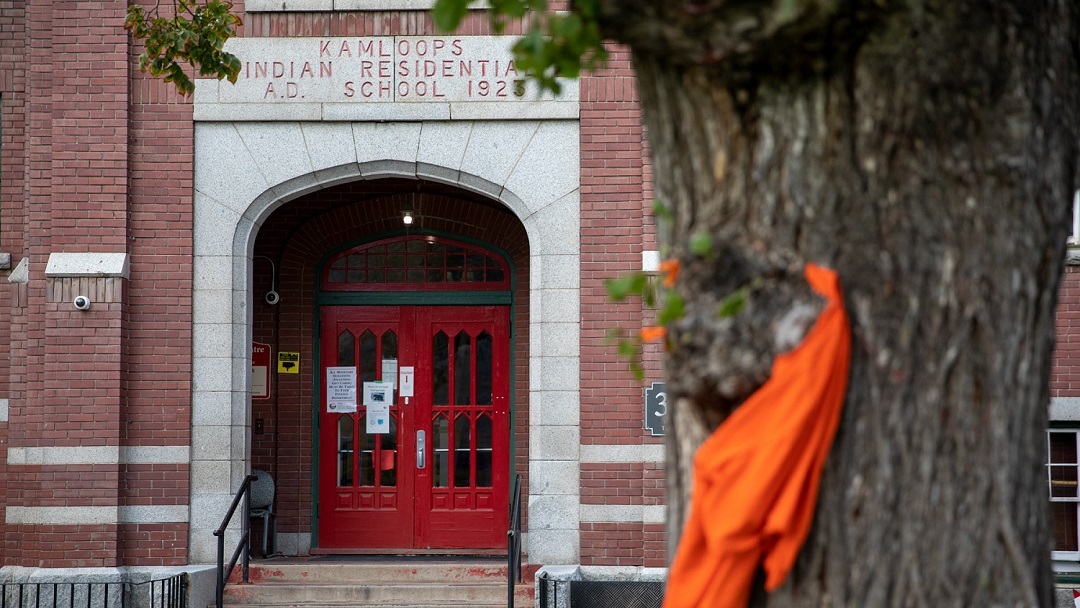
Emma is also taking back her people’s mother tongue that colonizers tried so hard to extinguish.
She is a student in the Me7 Texwtuxwtsínem-kt Secwépemc immersive language program, and the lessons are taught in the same brick building where her relatives were once punished for not speaking English.
“Elders who went to that school are coming in and teaching us there, and it’s really empowering to see and really empowering to be a part of,” Emma said.
The younger Gottfriedson says it feels like her community is ”in a place of healing” and that the national day honouring the children who were taken from their families is a chance for Canadians to come together to learn about the past and plan for the future.
“There is a connection that I have never seen before,” she said. “All of Canada, I hope that we learn to heal together.”
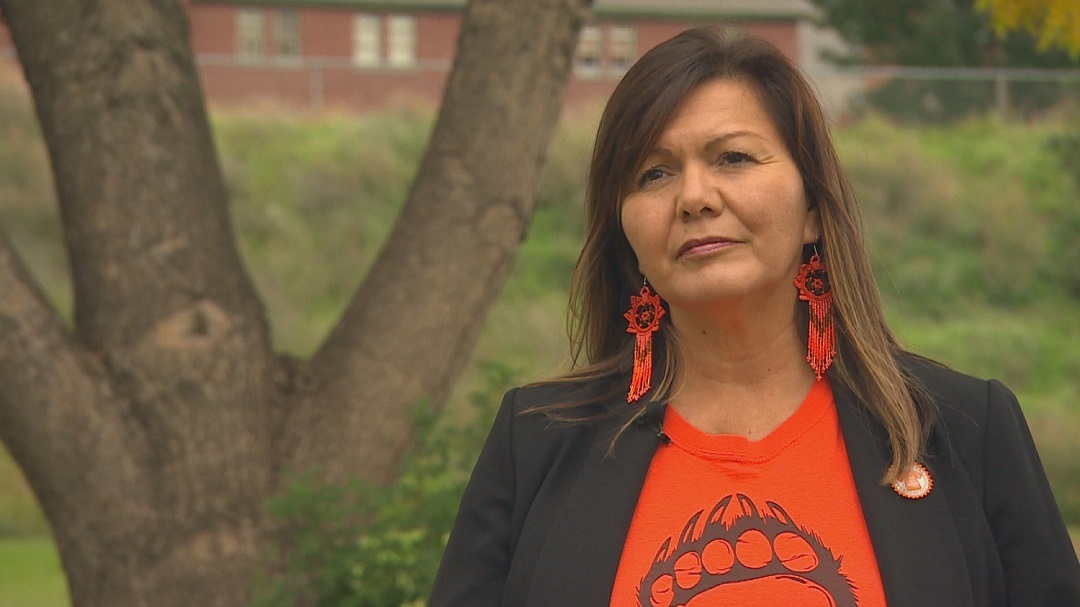
Chief Casimir says telling the world the truth about what many elders already knew had happened in Kamloops has been hard for her on “every emotional level imaginable,” but now that the truth is out, she, too, hopes it helps people heal.
She is also hoping for some accountability.
While her community reclaims the culture and language that church and state worked so hard to take, Casimir is still waiting for a formal apology from the Pope and for Ottawa to release school attendance records so First Nations can better identify their missing.
“It's about going through all those steps that we need to bring peace and justice," Casimir said.
